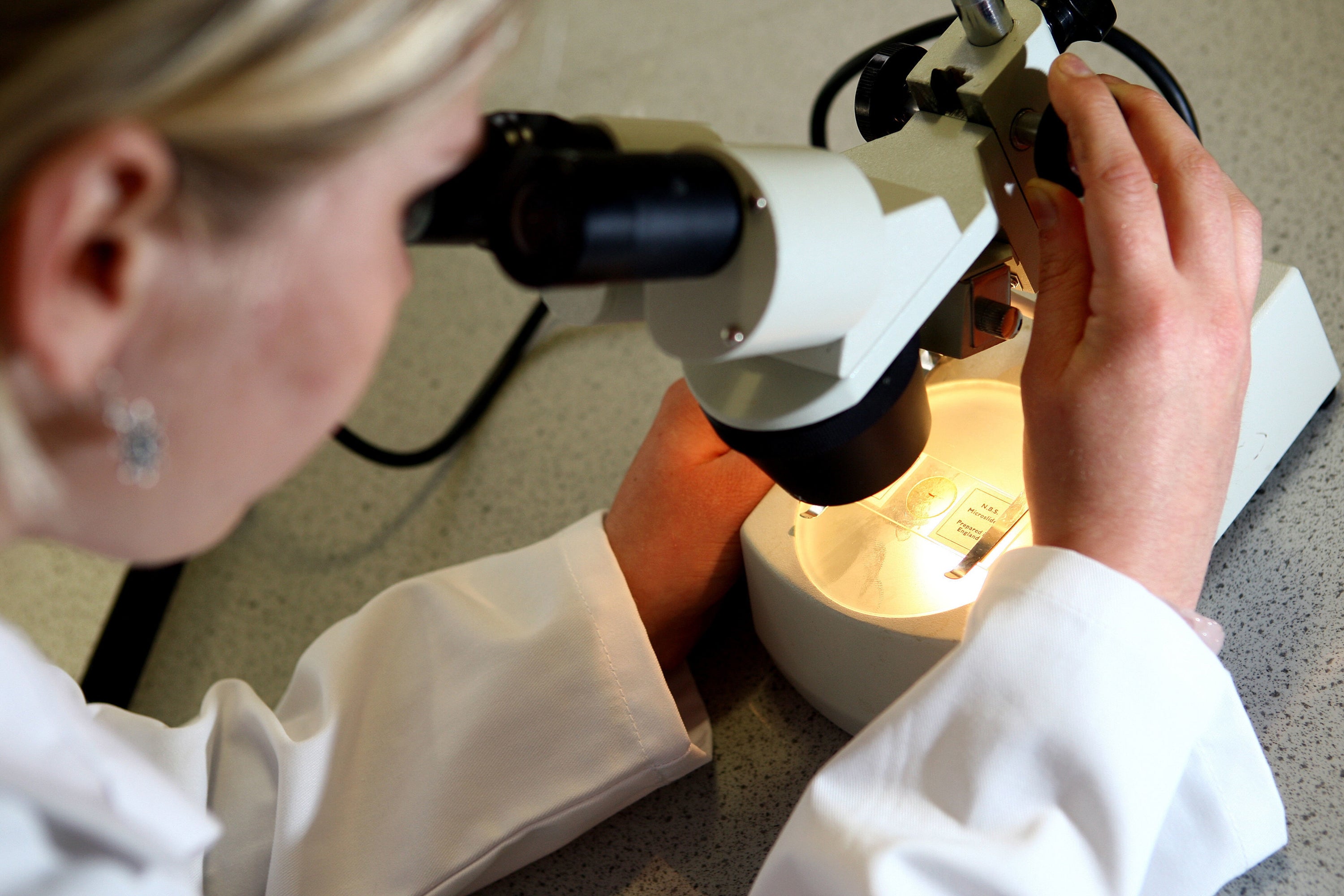Researchers take ‘important new step’ in finding treatment for MND
A drug commonly used for enlarged prostate glands could be used to treat the illness, University of Edinburgh researchers have found.

Your support helps us to tell the story
From reproductive rights to climate change to Big Tech, The Independent is on the ground when the story is developing. Whether it's investigating the financials of Elon Musk's pro-Trump PAC or producing our latest documentary, 'The A Word', which shines a light on the American women fighting for reproductive rights, we know how important it is to parse out the facts from the messaging.
At such a critical moment in US history, we need reporters on the ground. Your donation allows us to keep sending journalists to speak to both sides of the story.
The Independent is trusted by Americans across the entire political spectrum. And unlike many other quality news outlets, we choose not to lock Americans out of our reporting and analysis with paywalls. We believe quality journalism should be available to everyone, paid for by those who can afford it.
Your support makes all the difference.Researchers have taken an “important new step” in finding a treatment for motor neurone disease after they found a drug commonly used for enlarged prostates and high blood pressure could treat the illness.
MND is a group of rare diseases that destroy cells called motor neurons and causes patients to slowly lose the function of their muscles.
Researchers at the University of Edinburgh demonstrated the drug terazosin protects against the death of motor neurons in zebrafish, mice and stem cell models by increasing energy protection.
Alongside partners at Oxford University, experts wanted to determine if the drug could also protect motor neurons from MND.
Our work uses a combination of approaches to increase the confidence that drugs will actually work in people with MND and significantly slow disease progression. It represents an important new step in the search for therapies.
They focused on an enzyme – an active molecule in the cells – involved in energy production called PGK1.
Motor neurons were grown in a dish and experts demonstrated that terazosin protects these cells by increasing energy levels.
Terazosin also protected motor neurons in a mouse model of MND, improving survival and delaying the progression of paralysis.
They believe this could slow the progression of the disease in humans and are now looking into launching a clinical trial.
Fifty patients have been invited from the Oxford MND Care and Research Centre to participate in a feasibility study which will examine the impact of terazosin on key indicators of disease progression.
About 5000 people are thought to be living with the disease across the UK. The average life expectancy after the onset of symptoms is about three years.
Motor neurons need to produce energy to carry the brain’s instructions to the muscles. If there is not enough energy, the messages cannot be transferred effectively and movement is affected.
The research was funded by MND Scotland which says it is “delighted” to see a potential new therapy for the disease.
Dr Jane Haley MBE, Director of Research for MND Scotland, said: “We are delighted that, as a result of the study, the drug will move to a feasibility study in Oxford, involving people living with MND.
“This is a wonderful example of researchers, clinicians and MND charities working together to try and speed up the search for new treatments for MND – because it’s about time we found a cure.”
Dr Helena Chaytow, senior postdoctoral researcher at University of Edinburgh’s Euan MacDonald Centre and first author of the study, said: “Our work shows that terazosin is protective of motor neuron cell death in multiple models of MND, making it an exciting new potential therapy.
“The benefit of working with terazosin is that it is already prescribed for a different health condition, so we know that it is safe for humans and could quickly move to the clinic.”
Professor Kevin Talbot, Professor of Motor Neuron Biology at the University of Oxford and study co-lead, said: “We urgently need to accelerate the way drugs are developed from laboratory models into trials in patients.
“Our work uses a combination of approaches to increase the confidence that drugs will actually work in people with MND and significantly slow disease progression. It represents an important new step in the search for therapies.”